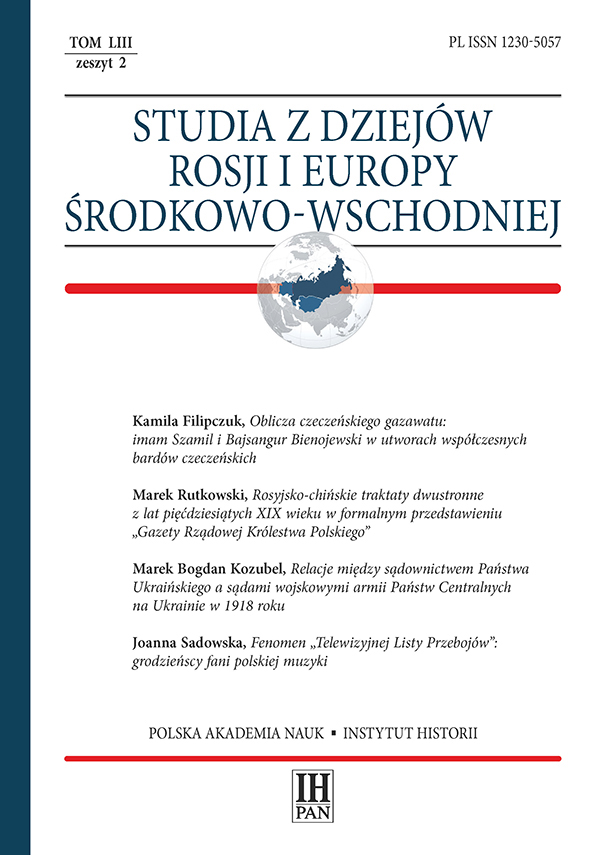„Rosyjscy emigranci w walce z faszyzmem”, czy raczej w służbie ZSRS? Czyli rzecz o długich mackach sowieckich służb specjalnych
“Russian émigrés in the fight with Fascism”, or rather in the service of USSR? In other words, a matter of the long arm of the Soviet Secret Services
Author(s): Łukasz DryblakSubject(s): History, Political history, Recent History (1900 till today), WW II and following years (1940 - 1949), Book-Review
Published by: Instytut Historii im. Tadeusza Manteuffla Polskiej Akademii Nauk
Keywords: emigration; Russia; USSR; intelligence; Second World War;
Summary/Abstract: A review on the publication Российская эмиграция в борьбе с фашизмом. Международная научная конференция, which has been the result of an international conference in Moscow, organised in 2015. By chosen examples of papers, the author discussed the volume’s individual chapters, entitled: “War premonition: the Russian emigration’s reflection on Nazism and Hitler’s plans”; “Russian émigrés – participants of French Resistance”; “Russian émigrés – participants of anti-Fascist struggle in Yugoslavia”; “Anti-Fascist movement during the Second World War and the Russian émigrés”; “Anti-Fascist struggle in the intellectual and artistic output of Russians in exile”. The author focused mainly on the numerous examples of cooperation of Russian emigration with Soviet intelligence. The cases of prince Sergey Sergeevich Obolensky from the Union of Mladorossi, Vladimir Lebedev, Yuri Lobachev, émigrés linked to the Communist Party of Yugoslavia and col. Fyodor Makhin, a NKVD agent, were discussed. Also noteworthy were the papers on Russian émigrés in the ranks of Polish underground, the aid campaigns for the USSR organised by the South American Russian emigration (including ethnic minorities) and the journalistic writings of the Socialists-Revolutionaries (the SRs) in France. The publication emphasised the people and groups that undertook “the fight against Fascism” at the side of the USSR, which makes it a little bit biased, in spite of this the reading of its contents leads to interesting observations. First of all, the number of émigrés engaged in pro-Soviet initiatives was insignificant and did not contribute to a constant change of negative views of the majority of Russian émigrés on the USSR. Secondly, the use of Russian emigration within the national Communist movements and the later career of the émigrés in the countries of residence turned out to be an interesting thread (from the perspective of the history of intelligence it is crucial for understanding the modus operandi of Soviet Secret Services when it comes to the use of the diaspora). Despite a substantial difference in level between individual papers, in the reviewed publication the reader will find a large dose of details, which will be interesting for historians of the emigration, of ideas or of intelligence.
Journal: Studia z Dziejów Rosji i Europy Środkowo-Wschodniej
- Issue Year: 53/2018
- Issue No: 2
- Page Range: 177-193
- Page Count: 17
- Language: Polish

